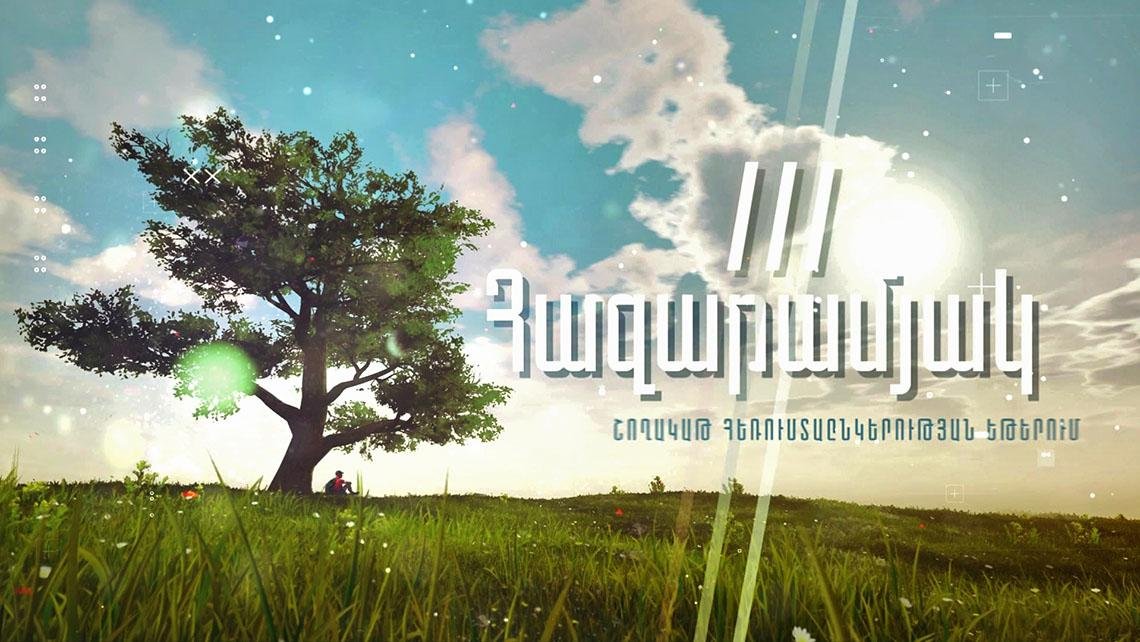
Author and host: Anna Sargsyan
In this rapidly changing modern world, an individual faces the issue of self-expression, while the societies need new identity marks. The ever-lasting question that always concerned humanity, universal values are tested in every society in its unique way and require solutions from each individual separately.
“Post-Soviet Armenian Reality”, “Collective Memory”, “Knowledge and Information”, “Lessons of Independance”, “Language and Self-Cognition”…. All these are the topics that are discussed with merited and young scientists, artists and priests in the pavilion of Third Millennium.
The TV series were first created in 2005. In 2011, it won the annual award of Yerevan Press Club for developing the culture of dispute
Frequency: every Thursday, at 21:55
Rerun: Friday, at 13:00, Sunday, at 15:15
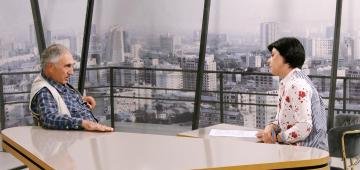 |
Restoration of the Mother Cathedral of St. Etchmiadzin
How was the Mother Cathedral restored? Anna Sargsyan spoke with Amiran Badishyan, the chief architect of the Mother Cathedral restoration project, Hasmik Gevorgyan, the chief materials expert for the Mother Cathedral restoration, and Gagik Galstyan, the founder of the "Horizon-95" construction organization, about this enormous work. Here is a compilation of those conversations.
|
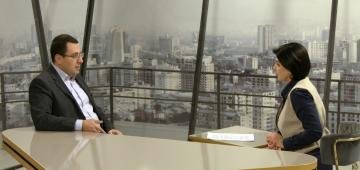 |
Starting Higher Education from Zero
A scientific degree should be awarded only for scientific novelty, but the vast majority of scientific degrees awarded worldwide are not awarded for scientific novelty. Hakob Madoyan believes that our higher education lacks the ability to proceed from the internal logic of the content. If we proceed from the content, the organizational method will come by itself. But approaching it from the opposite side, we will kill the content. Anna Sargsyan continues to talk about the content and structure of higher education with Candidate of Philosophical Sciences Hakob Madoyan.
|
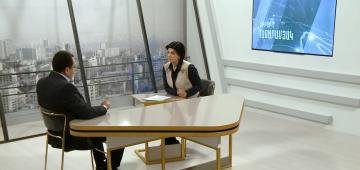 |
What is higher education
It is necessary to distinguish between those professions that are fundamental and those that are auxiliary. Hakob Madoyan believes that now, in the changed world, the terms of 3 or 4 years for a bachelor's degree and 1 or 2 years for a master's degree are already outdated. There are professions for which a bachelor's degree should be 5, 6, 7 years. There are professions for which a master's degree should be 2, 3, 4 years, because scientific information has expanded so much that it takes more time to master it. Anna Sargsyan talked about the content and structure of higher education with Hakob Madoyan, candidate of philosophical sciences.
|
 |
Conquering History
What is the difference between history and the past? When does history become a legal and political category? What is the reason for forgetting the past? Anna Sargsyan spoke with PhD. David Mosinyan.
|
 |
Times of Homelessness
According to the UN, 150 million people are homeless. Most of them were forced to leave their homes as a result of conflicts, violence and other violations of human rights. Homelessness is not only a real life, but also a concept. Do attitudes affect public relations, states? Anna Sargsyan talked with candidate of philosophical sciences Armen Sargsyan.
|
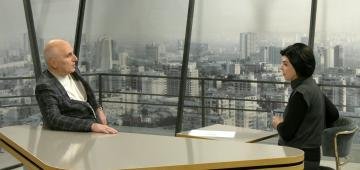 |
From culture to state, from state to bread
Managing the state well also means managing the culture well, otherwise the process of decay and disintegration takes place. Different sectors become self-sufficient, collapse, political processes may go normally, but some sectors may become dead. It can lead to the death and disintegration of the state. What is a state, what creates a state? What must an individual be able to do in a state to justify his decision to live there? Anna Sargsyan talked with Doctor of Arts, Professor Mher Navoyan.
|
 |
Features of restoration of the cathedral
Holy Etchmiadzin Cathedral opened its doors after a long and complex restoration. This is the first time that work on the restoration of such a large-scale monument has been carried out in Armenia. Anna Sargsyan spoke with Gagik Galstyan, the founder of the "Horizon-95" construction organization, about the temple's construction features, design, and fixing processes.
|
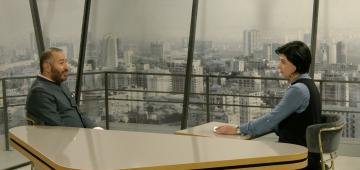 |
Muron, a symbol of peace
The Church Fathers called muron the oil of reconciliation. According to Bishop Gevorg Saroyan, Primate of Masyatsotn Diocese, the church means internal, national, and interpersonal reconciliation. According to him, reconciliation is forgiveness in the Christian sense. How can reconciliation be achieved when there are many disagreements, even enmity, in public life? Anna Sargsyan discussed the chain of myrrh, reconciliation and forgiveness with Bishop Gevorg Saroyan.
|
 |
Holy Etchmiadzin raised the sphere of monuments restoration to a new level- material scientist
"In the event that traditional technological tricks are considered insufficient, the monument's strengthening can be carried out using modern technologies, the effectiveness of which is proven by scientific reasoning and guaranteed by experience," defines the international charter for the restoration of monuments. All international standards of restoration were observed during the restoration works of Holy Etchmiadzin Cathedral. Anna Sargsyan had a conversation with Hasmik Gevorgyan, the chief material scientist of the restoration of the Cathedral, director of the "Horizon-95" experimental laboratory.
|
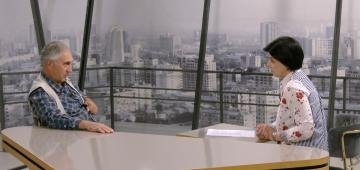 |
The restoration of the Cathedral is completeOn September 29, the Cathedral of the Holy Etchmiadzin will be consecrated. It has been restored from the foundations to the cross of the dome. Holy Etchmiadzin is an extraordinary structure, it is not only the spiritual center of the Armenian people and the seat of the Armenian Apostolic Church, but also an exceptional monument of universal significance, which is included in the UNESCO world heritage list. Anna Sargsyan talked with Amiran Badishyan, the chief architect of the restoration project of the Cathedral. |
 |
Political semester. part 2
Anna Sargsyan discussed the most colorful topics of the political palette with knowledgeable specialists in the "3rd Millennium" pavilion, where we present the best ideas in one breath.
|
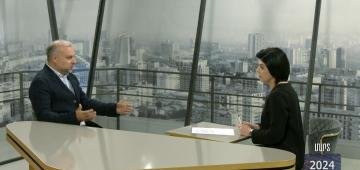 |
Political semester. Part 1
In the first half of the year, the main topic of the political agenda was the settlement of relations between Armenia and Azerbaijan and, in that context, the so-called peace agenda with its consequences.
Anna Sargsyan discussed the most colorful topics of the political palette with knowledgeable specialists in the "3rd Millennium" pavilion, where we present the best ideas in one breath.
So:
The government proposed to replace the name of the subject "Armenian History" with "History of Armenians ".
Individual representatives of the ruling power on various occasions questioned the meaning of the existence of the state.
As a result of the establishment's policies, there may be a Republic of Armenia, but not an Armenian state.
The Artsakh war obviously affected the national behavior of the Armenian society and its manifestations are tangible.
The Armenian government continued to meet the demands of Azerbaijan, advancing the concessionary policy.
Immediately after the war, Azerbaijan, at the state level, started to destroy the Armenian traces in Artsakh.
After the war, the Society lost faith in its resources, as a result of which the consequences of defeat are more devastating.
After the forced deportation from Artsakh, our compatriots found themselves in the status of "familiar foreigners" in Armenia.
The main narrative of the political authorities after the war is that the events happening with Armenia are inevitable.
|
